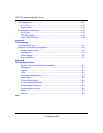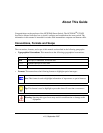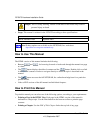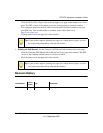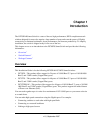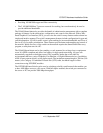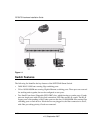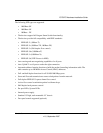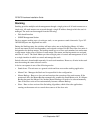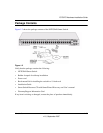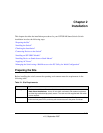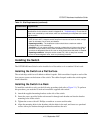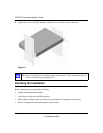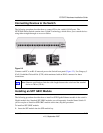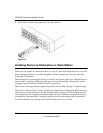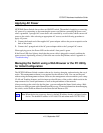
FS700TS Hardware Installation Guide
1-17 Introduction
v1.0, September 2007
Stacking
Stacking provides multiple switch management through a single point as if all stack masters are a
single unit. All stack masters are accessed through a single IP address through which the stack is
managed. The stack can be managed from the following:
• Web-based Interface
• SNMP Management Station
Devices support stacking up to six units per stack, or can operate as stand-alone units. Up to 192
10/100/1000 ports are supported in a stack
During the Stacking setup, the switches will auto-select one as the Stacking Master. All other
devices are named as slave stack members, and assigned a unique Unit ID. One of the slave units is
designated as the backup master. The backup master acts as a slave stack member, but can become
a stack master in the event of failure of stack master. The master and backup master are assigned
unit IDs of 1 and 2. The Stack Master provides a Single point of control and management as well
as a single interface in which to control and manage the stack.
Switch software is downloaded separately for each stack members. However, all units in the stack
must be running the same software version.
A device can operate in one of the following modes:
• Stand-alone - The unit runs as a general switch and does not run the stacking application.
• Master Unit - Manages the Stack and is responsible for the configuration.
• Master-Backup - Runs as a slave unit and monitors the operation of the stack master. If the
master unit fails, the Master-Backup automatically assumes the Stack-Master role. If a Master-
Backup becomes the Master Unit, another Master-Backup will need to be selected manually.
One of the Slave units will not automatically become a Master-Backup.
• Slave - Runs a slave version of the Switching Algorithm, which allows the applications
running on the master unit to control the resources of the slave unit.



